This essay reflects upon the divergent responses to and asymmetrical consequences of COVID19 in McBride’s home country, South Africa, and her country of residence, Switzerland. Part of "Learning from COVID19: Reflections on knowledge-related commons and practices of self-organization amidst COVID19."
In the last scene of Coffee and Cigarettes (2003) by Jim Jarmusch, Taylor Mead complains to Bill Rice about feeling divorced from life, then suggests pretending that the coffee they are drinking is champagne “to celebrate life, like the rich and elegant people do, the classy people.” Rice replies: “I prefer coffee, simple working man’s coffee.” I agree, champagne gives me headaches. They toast their coffee anyway, raising paper cups to Paris in the 1920s and New York in the late 1970s.
I rewatched the film after some of my colleagues at the Centre for African Studies started a weekly “Coffee and Cigarettes” Zoom meeting to keep in touch during this period of isolation. Before coronavirus, a lot of work happened during smoke breaks, when the office smokers took their coffee outside to keep their cigarettes company on the cobbled road of Rheinsprung in the old part of Basel. You could call this a version of the watercooler effect because even the nonsmokers join so a lot of planning and discussing and critiquing happens over coffee and cigarettes. Sometimes over champagne too. Shortly after arriving in Basel from Johannesburg, I was at the office to scan some paperwork to send to the Migration office for my residence permit when I inadvertently got swooped into a champagne campaign to celebrate the publication of Lorena Rizzo’s new book. At that stage, I didn’t know Lorena (or anyone really) but I toasted along, charmed by the camaraderie and the welcome and the delight of champagne on an average Wednesday afternoon. Even though it gives me headaches.
Fast forward a few months, and I am still charmed by the comfortable friendliness that accompanies my colleagues. A few weeks into the pandemic and our weekly “Coffee and Cigarettes” call is comfortable too, no longer an awkward transfer of meeting links and secret passwords, everyone has more or less gotten the hang of things. That said, one thing I cannot get the hang of is the strangeness of being the only one outside of Europe. Most of the gang have remained in Basel, although one is stone’s throw away in Freiburg and another was lucky to have escaped to a mountain chalet in the north of Switzerland. I took advantage of a long-booked flight for a since-cancelled conference and returned home. Out of habit, I check Covid-19 stats in Switzerland and South Africa at the same time (I have had the same tabs open on my laptop since before I skedaddled home) making for a surreal “on the inside looking out” experience.
A snapshot of the situation on Monday 27 April:
● Switzerland: 28 912 infections, 1 599 deaths
● South Africa: 4 546 infections, 87 deaths
The virus arrived in Switzerland much faster and harder than in South Africa, but because of the wildly different socio-economic situation in South Africa, a very intense lockdown was rolled out to try to flatten the curve of infections before winter arrived. Lockdown in South Africa means nobody is allowed out of the house at all, not to jog or to walk dogs, except to buy groceries or medication, and only essential goods are for sale. My colleagues are incredulous that the sale of alcohol and cigarettes has been prohibited here, no doubt because they can’t wrap their heads around the reality of an underfunded, overburdened public health system where the majority of medical trauma is caused by the substance abuse accompanying desperate poverty and joblessness.
Compared to the Swiss Federal Council’s recommendations for people to stay at home and work from home, to most of my colleagues, South Africa’s military-enforced quarantine seems archaic, a draconian abuse of power by opportunistic authoritarians. Meanwhile, into what now feels like week 987546 of a lockdown longue durée, I am both relieved and grateful for the way that my government has responded to this crisis. Of course, the response has not been without flaws and it is still early days here, but for now, I am proud. Today is also a big day in South African history: Freedom Day, commemorating the first post-apartheid elections held on this day in 1994. I was only six at the time and I don’t really have any apartheid memories, but like many black South Africans, I thank my lucky stars daily that apartheid ended and now more so than ever before. I shudder to think about what this pandemic would have been like under the previous (evil) dispensation.
When my colleagues talk about meeting a friend or three for a walk in the forest or mountains, or recount funny quips about going to a birthday party held in shifts with no more than five people in the room at the time; I giggle at their rule-bending anecdotes or sigh enviously as the thought of fresh Alpine air makes me salivate inside my apartment-prison. But truth be told, I am incredulous that a society where everyone strictly abides by unspoken rules has been comparatively relaxed about this pandemic. Granted my sample of Swiss society is nowhere near representative, a small group of hippy historians, but still.
When I arrived in Switzerland, I was gobsmacked to see that everyone sticks to the right on escalators so that fellow travellers in hurry can zoom past on the left. I cannot imagine that kind of strict social norm adherence in South Africa, mainly because I cannot imagine myself kowtowing like that. I do it in Switzerland though. On the March morning that I left Switzerland, I was just as gobsmacked to see a policeman with a semi-automatic weapon watching over shoppers at the Coop supermarket at the Basel train station, no doubt guarding against stockpiling or looting. I had never before seen any kind of security in the city, in fact I often found myself marvelling at jewellery shops that leave their wares on display at night sans burglar bars. Seeing a gun in Switzerland spooked me, no matter that I have grown up around guns or that armed private security companies abound in South Africa, or that the South African Police (SAPS) is a law unto itself.
When I left Switzerland for South Africa, more than one person in both countries asked me if I really think I will be safer in South Africa and it was hard to respond. I wanted to bite their heads off for the insult implicit in the question so I avoided answering. How to articulate that safety is so much more than national disaster management, and not simply a case of wanting to be with loved ones? A few weeks before Covid-19 was declared a pandemic, a friend in South Korea saw the writing on the wall and jumped ship fast, no matter the swift action of that government. When I did the same and we commiserated about it, joyfully singing the praises of our hometown, she said: “This either says something about Johannesburg or something about us that we’d rather the mayhem of here than the strangeness of a safe place.” The devil you know I suppose.
I spoke with another friend who was struggling with pandemic productivity, specifically, struggling with the guilt of not working fast and hard at his research. He was surprised when I said that I don’t have the mental comfort to produce knowledge that I can trust, surprised that I would be suspicious of all knowledge production during this extraordinary time until I explained that I am suspicious of my own knowledge production, wavering and wobbling between two worlds, with a foot in each. Planning to return to Basel as soon as possible while fully immersed in the bizarre tension of Johannesburg under a lockdown means that positioning myself to work has been weird. City Editor of the Johannesburg Review of Books, Lidudumalingani wrote about the search to find a new vocabulary for the new city because “of all the literature that has been written about Johannesburg, none reckons with the present times, the empty city, the city in isolation.”
I have no literature to lean on to make sense of the vertigo that comes with emails from my institution, thousands of kilometers away, announcing that it is safe to return to university offices, provided everyone stays two metres away from each other. Where I am writing from, the thought of an office or coming into contact with colleagues is jarring because forced isolation is still in place and will be for some time. And so I find myself searching for a new vocabulary of being in more than one place, more than one pandemic. A grammar for the cognitive dissonance of seeing Switzerland easing restrictions to avoid further damage to their economy while South Africa’s economy shudders to a halt. A register to reflect on the Swiss franc, already trading at a five-year high, climbing and climbing while ratings agency Moody’s moves South Africa’s economy to “junk” status because of slow economic growth and rising debt. A vocabulary for the ache in my chest knowing that I will soon return to a rich country experiencing this pandemic radically differently to my poor country.
I don’t yet have my words lined up, still processing my position in the research spaces I currently traverse, still thinking about power in the context of this Call For Complaint: for Plague Speech, for Sick Speech. But, one small, good thing has helped to organise my scattered thoughts while also offering me both nourishment and a sense of community. “If it weren’t for the coffee, I’d have no identifiable personality whatsoever,” said David Letterman. This caffeinated nectar of the gods has loosened my tongue to articulate stress and duress, both individual and institutional. And while I am cognizant that “the university speaks like a community but acts, often, in ways that directly undermine that community” and just as cognizant of “the vast differentials in power between students, faculty, within faculty, between faculty and staff,” I am also grateful that there is one small, good space on the internet to complain about feeling divorced from life, to celebrate life with a cup of coffee in hand.
Sindi-Leigh McBride
Researcher and writer from Johannesburg, and a PhD candidate at the Centre for African Studies, University of Basel.
Cuarentena Volumes I
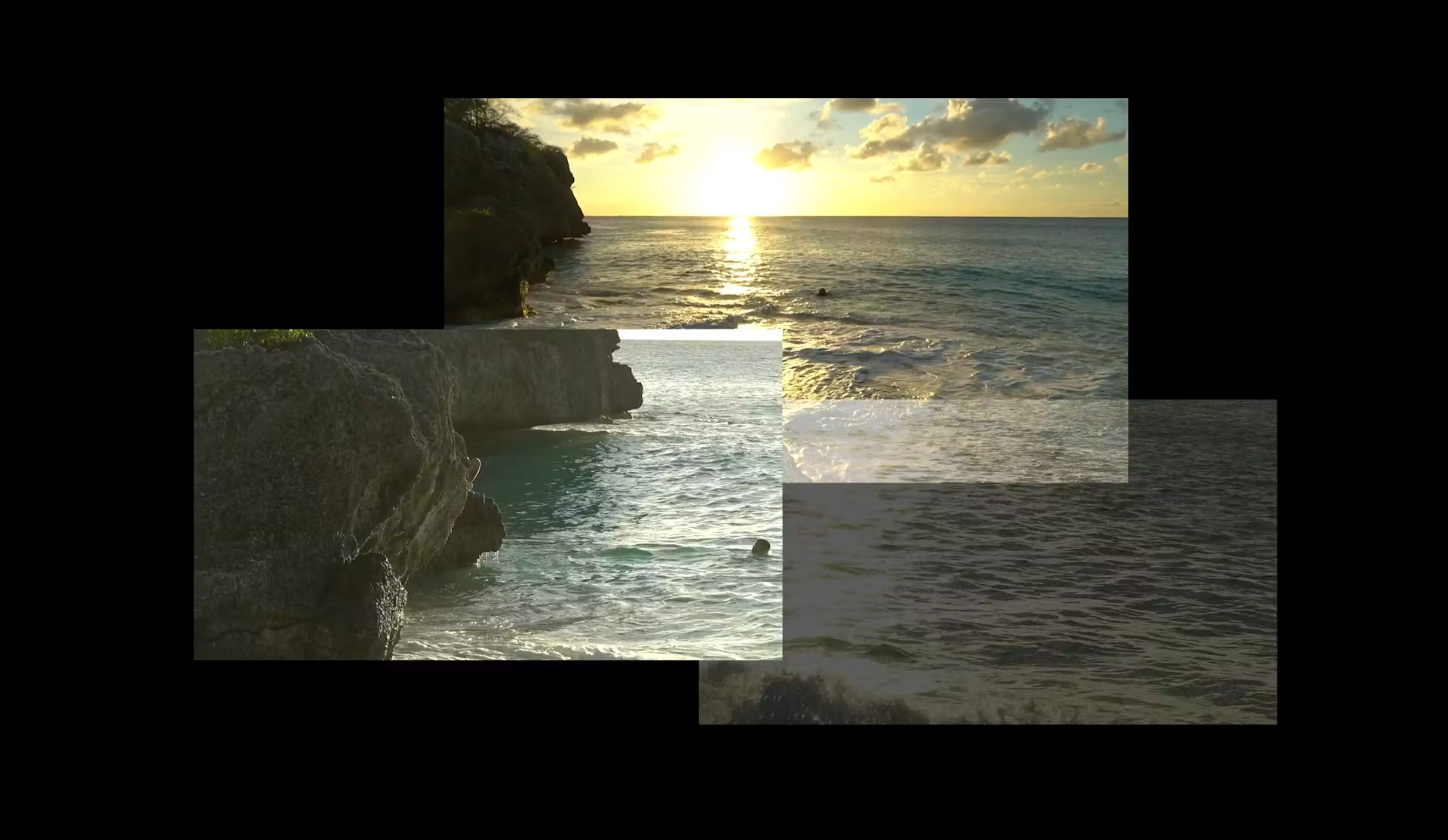
Cuarentena Volumes is abbreviated as cv: “these times might become a dent in the curriculum vitae, allowing to focus on the work itself.” Part of "Learning from COVID19: Reflections on knowledge-related commons and practices of self-organization amidst COVID19." Read more
Prom.run
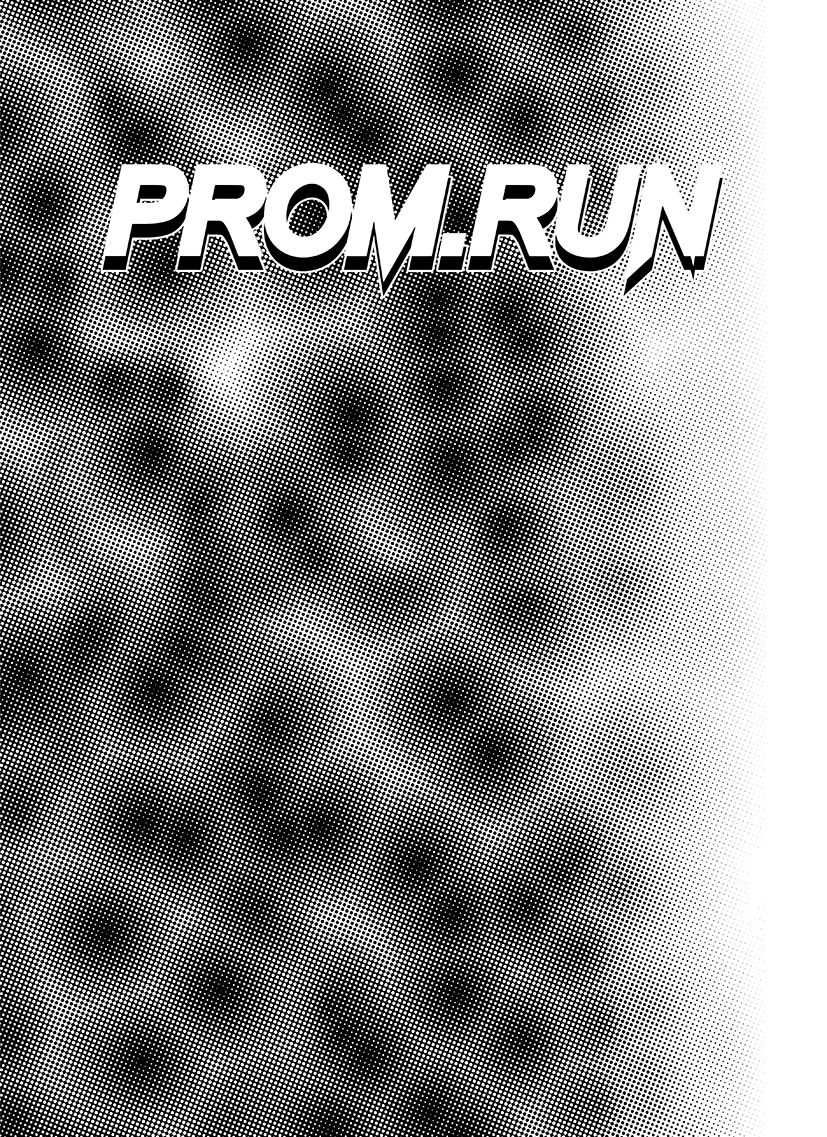
«Prom.run» is the publishing project that consists of a selection of materials that have inspired their practice as an art collective and addresses topics relating to self-organization and knowledge-related commons. Part of "Learning from COVID19: Reflections on knowledge-related commons and practices of self-organization amidst COVID19." Read more
Art On Demand - Radicalizing Access to Art in Times of Crisis
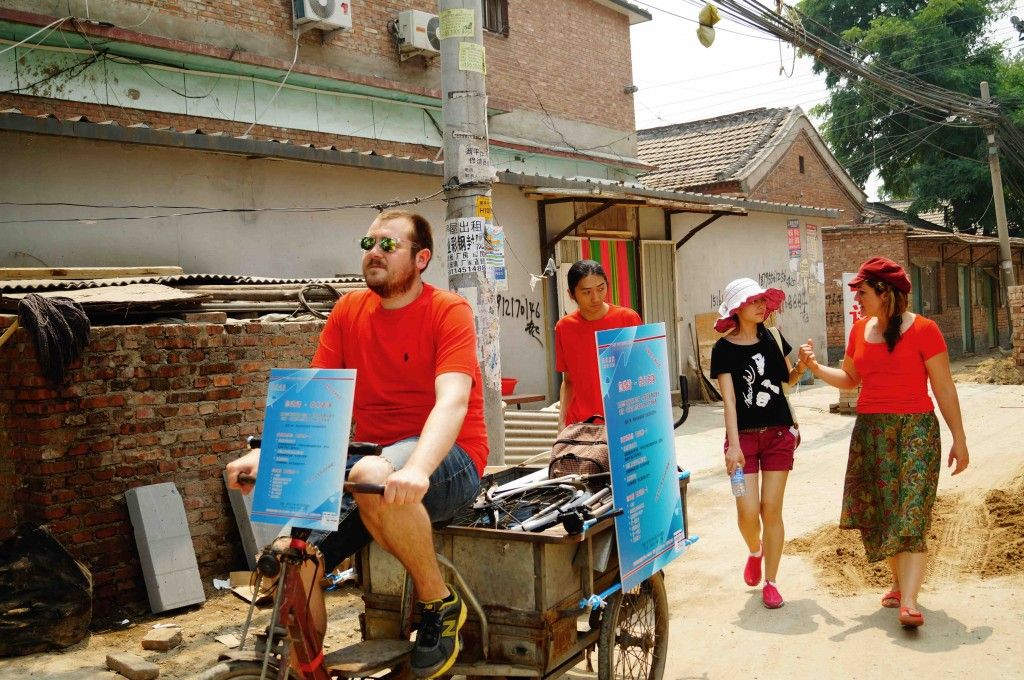
Art On Demand is a collaborative participatory project which creates a platform from and for artists, curators, writers, theorists and audiences to collectively share and experience the creation of and encounter with art. Part of "Learning from COVID19: Reflections on knowledge-related commons and practices of self-organization amidst COVID19." Read more
dream#1 2020

This video work is a dreamy, haunting piece that looks at the role our personal stories play in the making of history, as well as the actual political potency of our feelings. Part of 'Learning from COVID19: Reflections on knowledge-related commons and practices of self-organization amidst COVID19.' Read more
Somebody

Centering the body without other bodies, Marquedant questions the parameters of being singular. Part of "Learning from COVID19: Reflections on knowledge-related commons and practices of self-organization amidst COVID19." Read more
GCD Memes
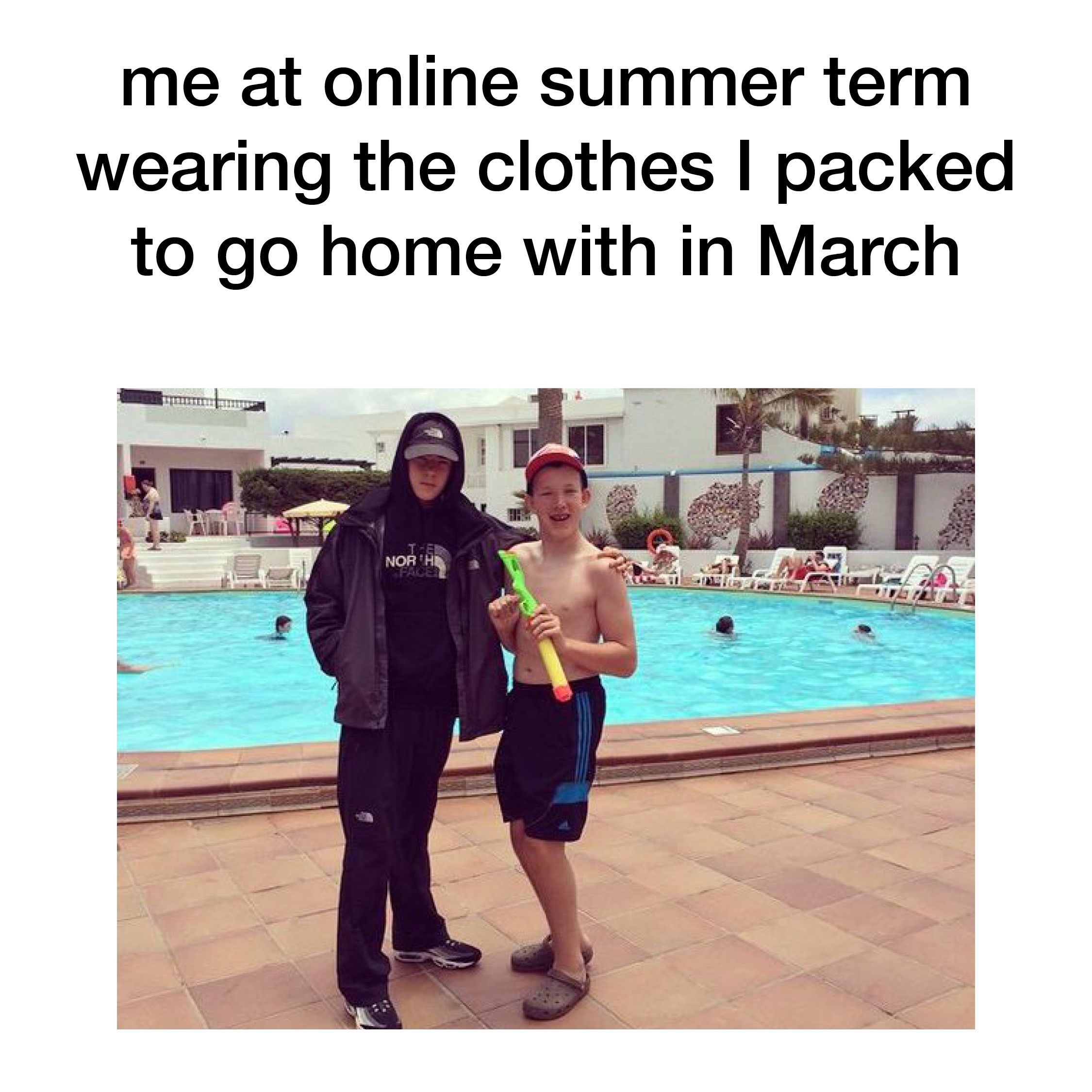
GCD Memes is a rolling body of work that attempts to reflect on the collective experiences of those involved in the GCD course at CSM from the student perspective. Part of "Learning from COVID19: Reflections on knowledge-related commons and practices of self-organization amidst COVID19." Read more
A short reflection on what COVID-19 teaches us about science

An essay which offers a welcome respite in thinking about the future of knowledge production and its rootedness in community. Part of "Learning from COVID19: Reflections on knowledge-related commons and practices of self-organization amidst COVID19." Read more
A Conditional Construction in the Making

A text reflecting Morrison’s interests in discursive frameworks; performative platforms for critical enquiry; and ways in which we can facilitate and mediate multiple spaces for the generation of knowledge. Part of "Learning from COVID19: Reflections on knowledge-related commons and practices of self-organization amidst COVID19." Read more
Bump Galaxy
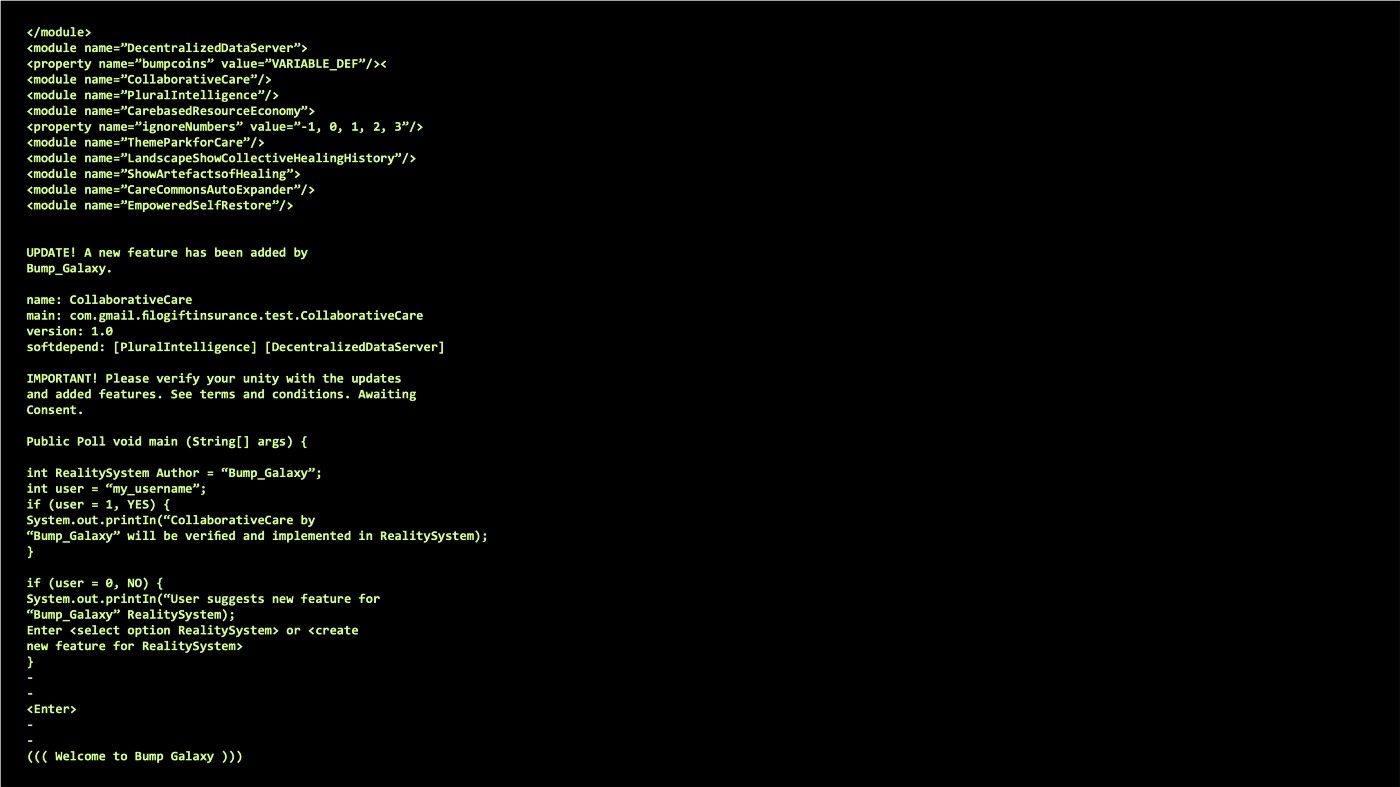
BUMP GALAXY is a virtual world and community for mental health. In it, players can visit several different Care Commons and engage with mental health professionals from around the world. Part of "Learning from COVID19: Reflections on knowledge-related commons and practices of self-organization amidst COVID19." Read more
I spat on it to put it back together
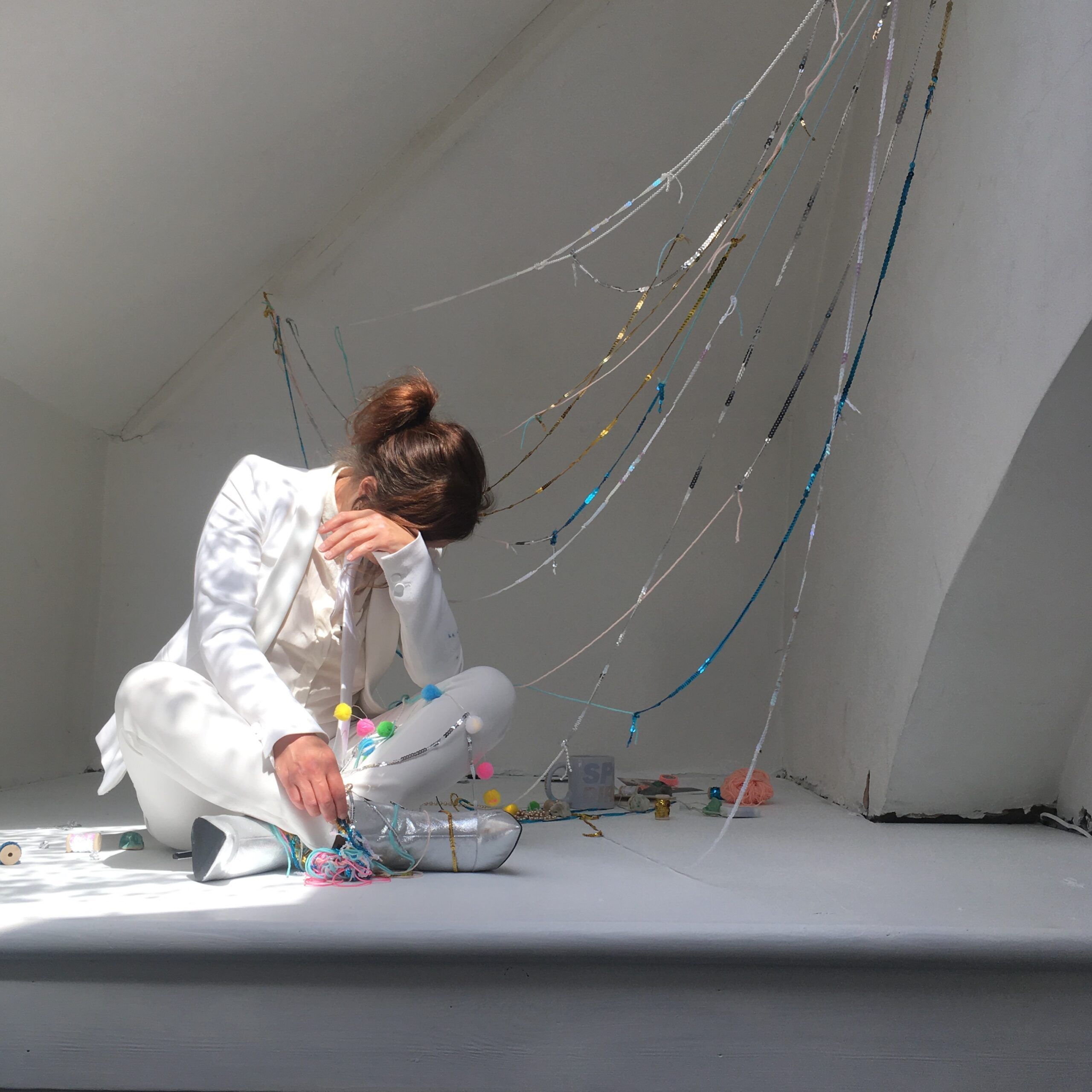
A self-conducted interview which offers insight into Price's practice and reflects upon the ways in which she positions herself both in her work as well as her community during the pandemic. Part of "Learning from COVID19: Reflections on knowledge-related commons and practices of self-organization amidst COVID19." Read more
The Anatomy of DIY-Objects in an Epidemic Infrastructure
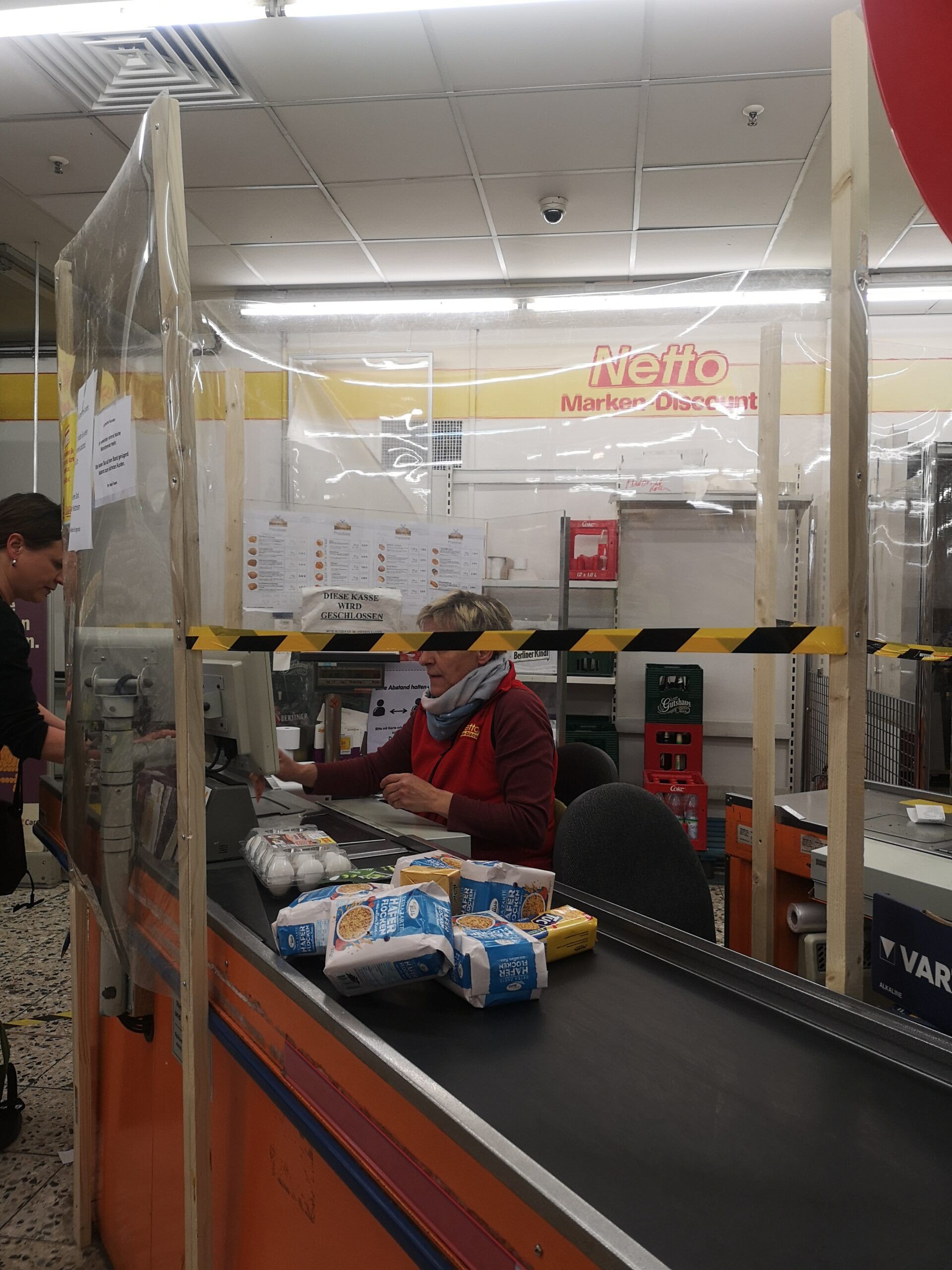
A short visual essay about the DIY infrastructures that pop up amidst a global pandemic. Part of "Learning from COVID19: Reflections on knowledge-related commons and practices of self-organization amidst COVID19." Read more
A three-minute excerpt from springtime 2020
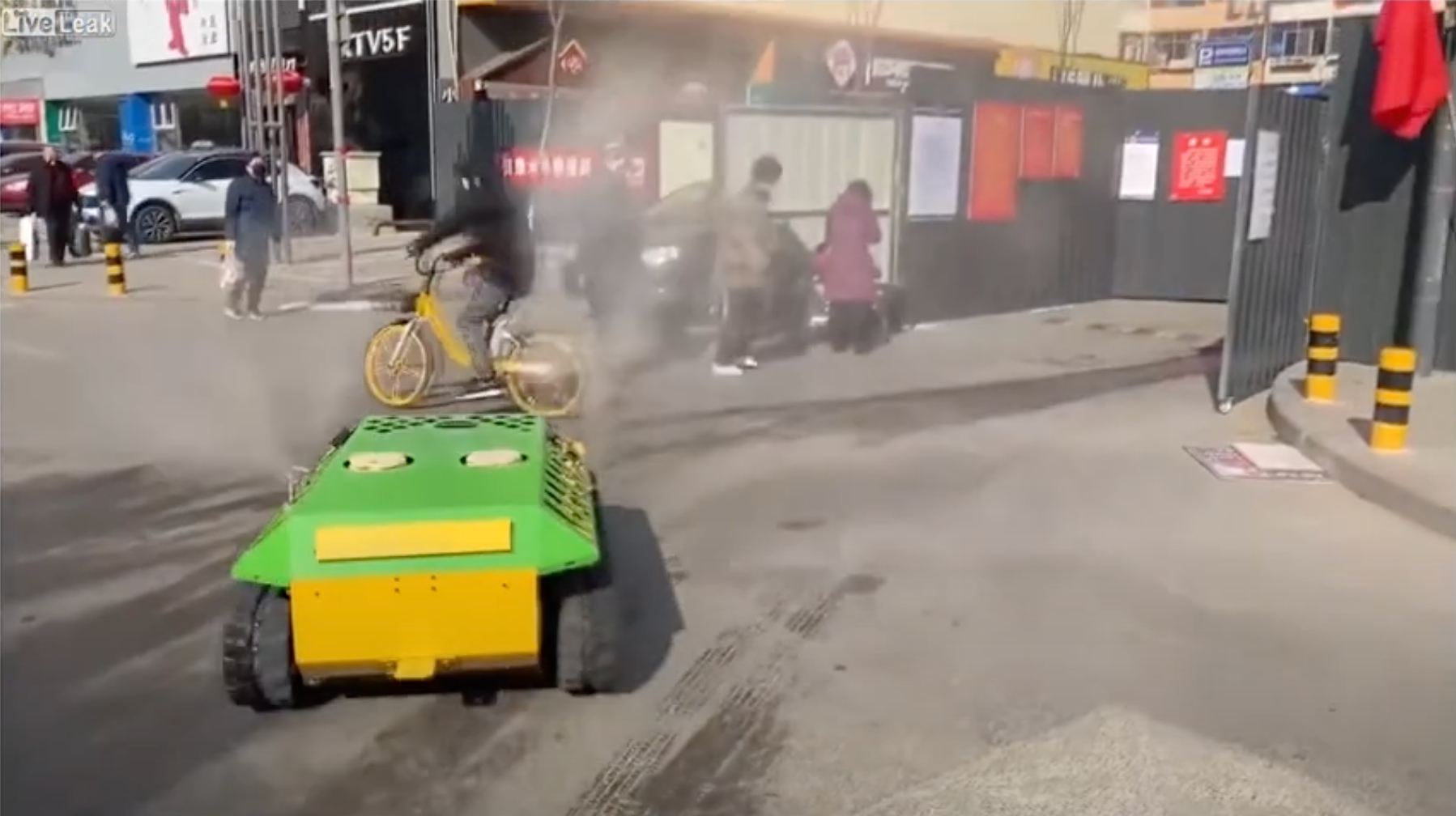
A collection of found footage from the lockdown period. Part of "Learning from COVID19: Reflections on knowledge-related commons and practices of self-organization amidst COVID19." Read more
Kein Strom

A short story, written as a diary entry, describes a lockdown-specific encounter. Part of "Learning from COVID19: Reflections on knowledge-related commons and practices of self-organization amidst COVID19." Read more
Wochenplan
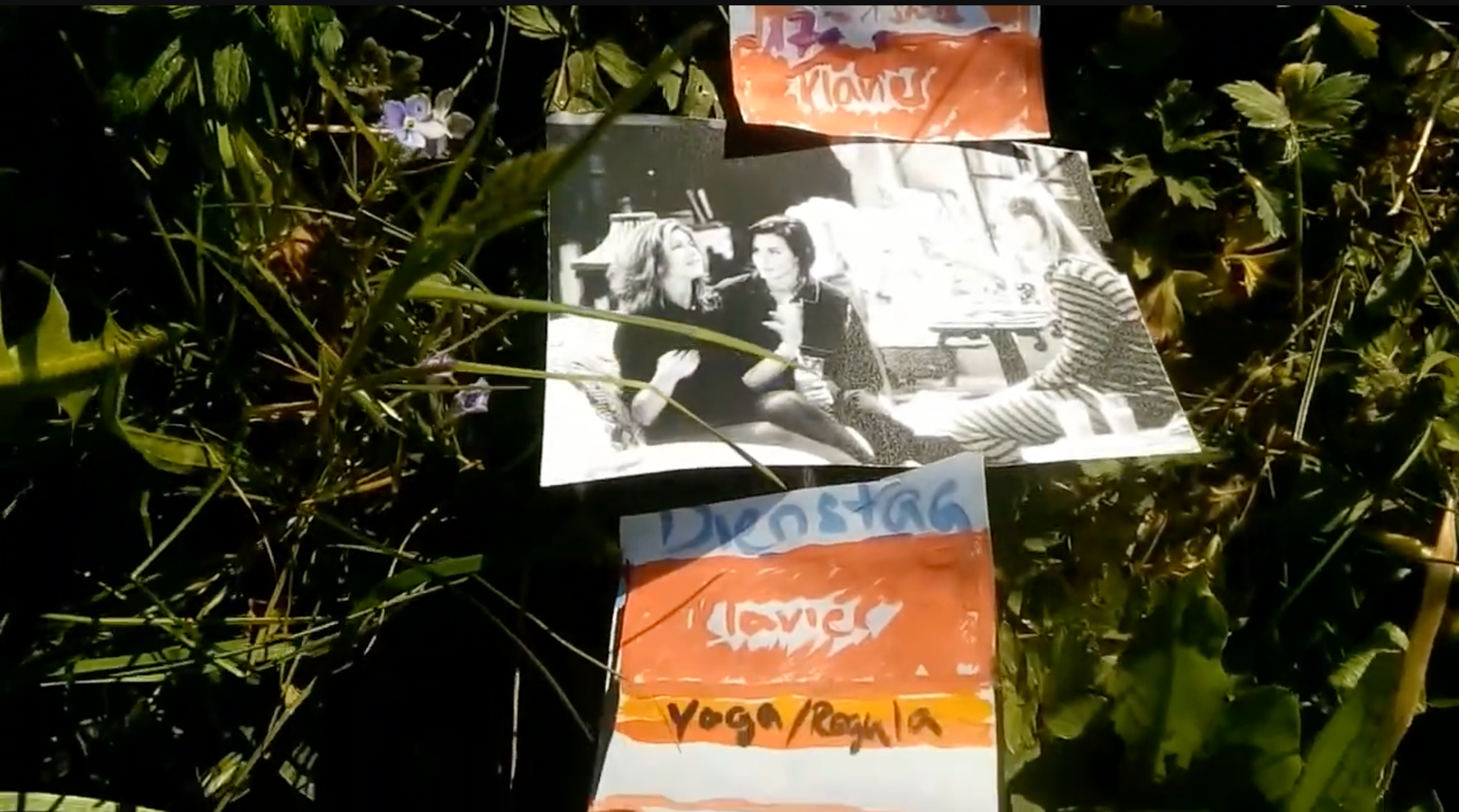
A short video that shows the ways in which Rieger organised her activities into weekly schedules in order to maintain her singing practice as well as her social life. Part of "Learning from COVID19: Reflections on knowledge-related commons and practices of self-organization amidst COVID19." Read more
